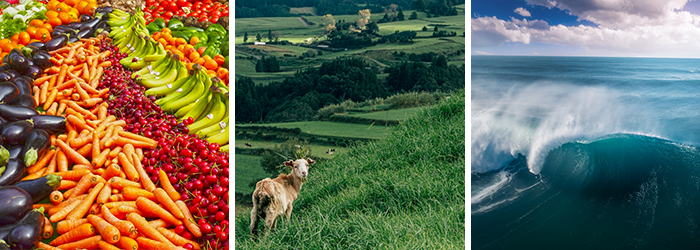Human activities are exerting increasing pressure on soils, seas and oceans, water, air, biodiversity and other natural resources. Nourishing the planet’s growing human population is directly dependent on the health of natural systems and resources. Beyond its intrinsic value, a functioning and prosperous ecosystem is the very basis for all resource utilisation. However, combined with climate change, humankind’s growing demand for natural resources creates environmental pressures that go far beyond sustainable levels, affecting ecosystems and their capacity to provide services for human well-being. The concepts of the circular economy, the sustainable bioeconomy and the blue economy provide an opportunity to balance environmental, social and economic goals and to set human activities on a path to sustainability.
Activities developed in this Cluster will build a knowledge base and deliver solutions to: protect, sustainably manage and use natural resources from land and sea – and enhance the role of terrestrial and aquatic systems as carbon sinks; protect biodiversity, secure ecosystem services and ensure food and nutrition security, providing safe, healthy and nutritious diets; accelerate the transition from a fossil-based linear economy to a resource efficient, resilient, low emission, low-carbon circular economy, and supporting the development of a sustainable bioeconomy and the blue economy; and develop resilient and vibrant rural, mountain, coastal and urban areas.
Research and innovation activities under this Cluster contribute in particular to the implementation of the goals of: the Environment Action Programme, the Common Agricultural Policy, the Common Fisheries policy, the Food Law legislation, the Maritime policy, the Circular Economy Action Plan, the EU Bioeconomy Strategy, the Biodiversity Strategy, the 2030 climate and energy framework and the EU 2050 long term vision for carbon neutrality20, EU Arctic Policy as well as EU legal provisions to reduce air pollution. Beyond the general sources of external advice, specific consultations would be sought from Standing Committee on Agricultural Research (SCAR).
Cluster 6 intervention areas:
- Environmental Observation
- Biodiversity and Natural Resources
- Agriculture, Forestry and Rural Areas
- Seas, Oceans and Inland Waters
- Food Systems
- Bio-based Innovation Systems in the EU Bioeconomy
- Circular Systems
Related to the areas in which this Cluster operates, there are still opportunities within the scope of Missions and Partnerships.
Among the 5 mission areas that have been proposed, there are 4 that are most directly related to this Cluster:
- Healthy oceans, seas, coastal and inland waters
- Soil health and food
- Adaptation to climate change including societal transformation
- Climate-neutral and smart cities
The list of candidate partnerships for this Cluster 6 aggregate are:
- European Partnership accelerating farming systems transition: agroecology living labs and research infrastructures
- European Partnership for Animal health (PAH)
- Agriculture of data
- European Partnership for rescuing biodiversity to safeguard life on Earth
- European Partnership for a climate neutral, sustainable and productive Blue Economy
- European Partnership for Safe and Sustainable Food Systems
- European Partnership for a Circular bio-based Europe
- European Partnership Water Security for the Planet (Water4All)
